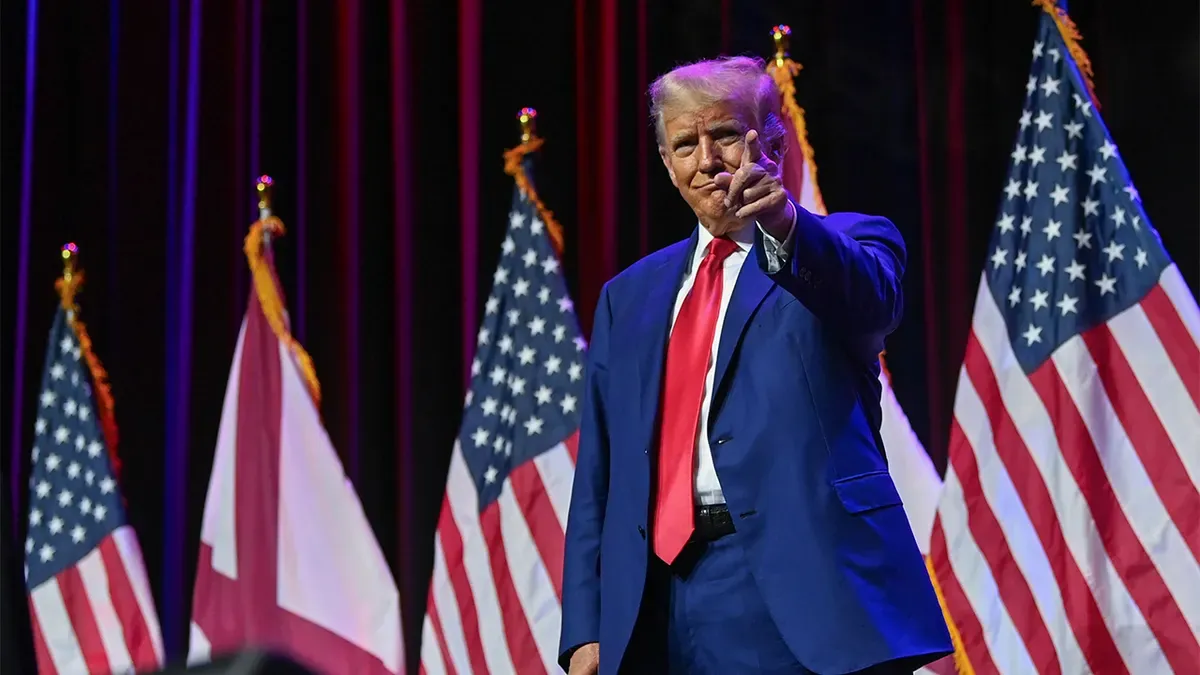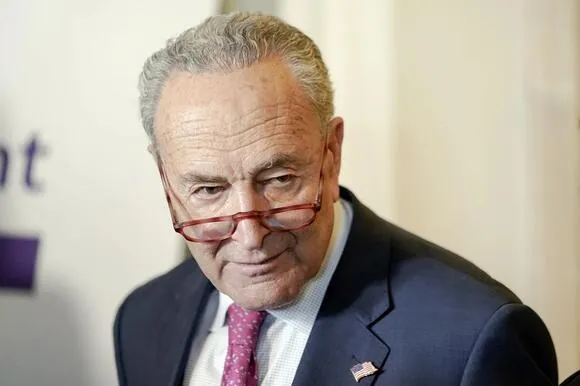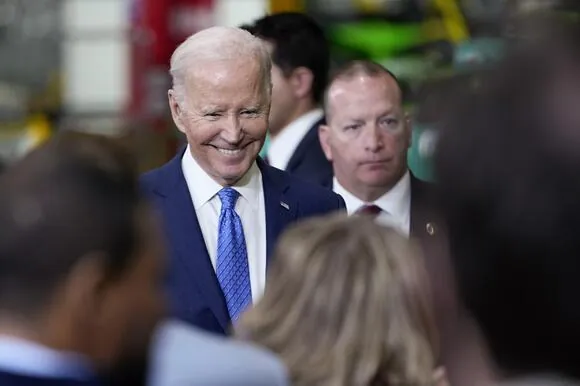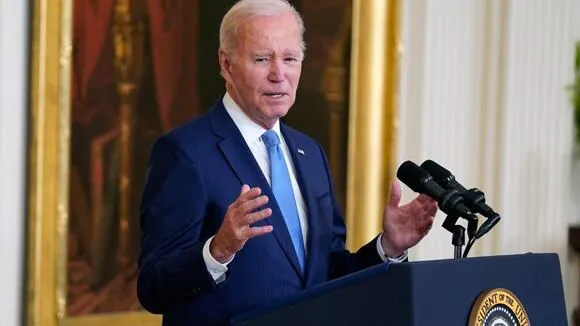Supreme Court trademark case focuses on Trump’s hand size: ‘Trump Too Small’
Greg Lukianoff, president and CEO of FIRE, has analyzed a survey on free speech conducted on American campuses. The survey has revealed that Harvard has the worst record for free speech among all the universities surveyed.
On Wednesday, the Supreme Court will be reviewing the case regarding the Patent and Trademark Office’s denial of registration for a political slogan on T-shirts that criticized former President Donald Trump without his consent. The central issue at hand is whether the PTO’s actions violated the First Amendment.
The central issue of this case revolves around the intersection of First Amendment rights and the right to privacy, specifically in regards to trademarks that contain criticism of government officials or public figures. It poses the question of where the line should be drawn between these two important rights.
Back in 2017, Steve Elster, a Democrat attorney who was actively involved in politics in California, had a desire to print the phrase “Trump Too Small” on T-shirts for commercial purposes. This phrase was coined from a humorous remark made by Senator Marco Rubio from Florida during the 2016 debate with Trump, where he referred to the former president’s hands in a crude way.
Elster attempted to trademark the slogan, but his request was rejected by the PTO. The Trademark and Trial Appeal Board also ruled against Elster, as the trademark identifies Trump without his permission.
A federal circuit court made the decision to overturn the previous ruling, acknowledging that Elster’s trademark is a key aspect of the First Amendment. The court also stated that the government cannot justify restricting speech that criticizes public figures or officials in the context of trademarks. This decision reinforces the importance of protecting freedom of speech in all forms.
As the new term approaches, the Supreme Court takes a retrospective look that is likely to have an impact on the 2024 elections.
In a bid to create catchy t-shirts, Democrat activist Steve Elster sought to trademark the slogan “Trump Too Small,” which was inspired by a crude joke made by Senator Marco Rubio towards Donald Trump on the 2016 debate stage.
The case, which involved Katherine Vidal, under secretary of commerce for intellectual property, went all the way up to the Supreme Court. The Justice Department argued that the Lanham Act, a federal statute that aims to safeguard intellectual property in trademark designations, empowers the PTO to reject Elster’s trademark application.
According to the DOJ’s petition to the high court, if a registration is denied due to a mark that includes a living individual’s name without their written approval, it does not restrict speech nor does it constitute punishment.
The Supreme Court has ruled that a parody dog toy that features a “poop-themed” version of the Jack Daniel’s whiskey logo is not protected by the First Amendment. The case was brought to court by Jack Daniel’s parent company, who argued that the toy infringed on their trademark and caused consumer confusion. The ruling confirms that parody does not necessarily protect against trademark infringement, especially if it can be seen as a direct imitation of a well-known brand. This decision is important for both trademark holders and those who create parodies, as it clarifies the limitations of the First Amendment when it comes to commercial use of intellectual property.
The Supreme Court is currently deliberating on whether a disrespectful and derogatory political slogan directed at former President Donald Trump can be trademarked without his approval. This decision will ultimately weigh free speech protections against the right to trademark a phrase or slogan. As the court examines this case, it will undoubtedly have to consider the implications of their decision on both sides of the argument.
Senate Democrats have announced the “next step” in their investigation into ethics concerns surrounding the Supreme Court. The Democrats are turning up the heat and continuing to put pressure on the court to address these concerns. The investigation is aimed at ensuring that the highest court in the land is held accountable and operates with the utmost integrity. With this announcement, Senate Democrats are making it clear that they are committed to seeing this investigation through to the end.
According to Fara Sunderji, a partner at the global law firm Dorsey & Whitney, the case at hand is not truly focused on Trump or the magnitude of his actions or anatomy, despite what may seem apparent on the surface.
According to Sunderji, the decision at hand could potentially limit freedom of speech, particularly when it comes to political critiques during a time when the nation is already so polarized with the 2024 candidates beginning to campaign. The individual seeking the trademark, Mr. Elster, argues that this is indeed a significant concern.
On Wednesday, the case of Vidal v. Elster will be presented before the Supreme Court for arguments. A picture of the Supreme Court of the United States, collected by Getty Images, accompanies this statement.
According to Sunderji, if the Federal Circuit’s opinion is upheld by the Court, it is unlikely that the USPTO will be flooded with trademark applications for every political phrase containing a candidate’s name during the 2024 election. Additionally, Sunderji hopes that daily life won’t be inundated with t-shirts featuring slogans with all the 2024 candidates’ names by unrelated third parties.
More News:







